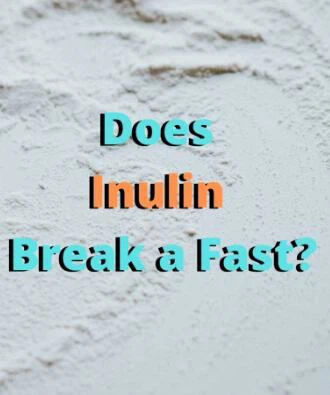Does inulin raise blood sugar?
Last spring, the European Commission authorized an Article 13.5 health claim linking chicory-root-fiber ingredients inulin and oligofructose with improved blood glucose levels. Now, the scientific study on which the health claim petition was based has been published in the European Journal of Nutrition.
The premise of the Article 13.5 health claim is that when replacing at least 30% of the sugar content in foods and beverages, chicory root fiber can help lower the consumer’s postprandial blood glucose response. Companies can use the health claim, “Consumption of food/drinks containing chicory root fiber/inulin/oligofructose instead of sugars induces a lower blood glucose rise after their consumption compared to sugar-containing foods/drinks.”
The European Journal of Nutrition randomized, double-blind, placebo-controlled crossover study was conducted in two parts in 40-42 healthy adult subjects. One study tested the effect on blood glucose and insulin response after subjects consumed a 250-g yogurt drink in which 20% of the sucrose was replaced with oligofructose. The second study tested the effect on blood glucose and insulin response after subjects consumed a 110-g serving of fruit jelly in which 30% of the sucrose was replaced by inulin. In both studies, placebo subjects were given full-sugar versions of the same foods.

In the yogurt/oligofructose trial, test subjects experienced a 14% reduction in blood glucose response and a 17% reduction in insulin response compared to placebo. In the fruit jelly/inulin trial, test subjects experienced a 16% reduction in blood glucose response and a 40% decrease in insulin response.
According to a press release by Beneo, “correlation analysis of the data also highlighted the more sugar that is replaced with chicory root fiber, the lower the blood glucose response will be. The linear slope suggests this effect can be seen with less than the 20% of sugar replacement, which is the lowest level that was experimentally tested.”
The study was conducted by researchers from Oxford Brookes University in Oxford, UK. The authors posited, “Lowering the blood glucose response to food products with chicory inulin or oligofructose, instead of sugars, could contribute to prevention and reduction the risk of chronic metabolic diseases. With the suitable properties of oligofructose and inulin as sugar replacers in food products, this could be achieved without compromise in taste and sensory qualities, which is essential for the acceptance of such food products by consumers in their everyday life.”
As Beneo explains, chicory root fibers like inulin and oligofructose “are not digested by human enzymes, making them unavailable for glucose release into the blood stream, ensuring that their consumption does not raise blood glucose levels.” Chicory root fibers serve dual purposes: in addition to lowering blood glucose response, they are prebiotic and a source of dietary fiber. They make good sugar replacers because they have a sweet taste.

Does inulin break a fast?
Inulin is a starch and has about 5 calories per serving, with around 3 grams of carbohydrate. Under some very strict intermittent fasting methods, those calories, together with the fact that inulin is a form of sugar, will break a fast.
However, inulin is not absorbed in the upper gastrointestinal tract, which means it isn’t metabolized like other starches. That means most people will not have an insulin reaction when consuming inulin. If to you breaking a fast means eating anything that causes an insulin reaction, then inulin should be safe.
Chicory Coffee Could Lower Blood Sugar
Chicory root contains inulin, a type of fiber that has been shown to help manage blood sugar levels in both human and animal studies.
A recent study treated diabetic rats with chicory inulin for eight weeks. It found that it helped control blood sugar by improving the way that carbohydrates were metabolized (10Trusted Source).
Although research on chicory inulin’s effect on blood sugar is limited, several other studies have shown that inulin may have a beneficial effect on blood sugar and insulin resistance.
Insulin is the hormone that transports sugar from the blood to muscles and tissues, where it can be used as fuel. Insulin resistance, which occurs with high levels of insulin over long periods, can decrease the effectiveness of this hormone and lead to high blood sugar.
In one small study, inulin reduced insulin resistance in 40 people with prediabetes (11Trusted Source).
In another study, supplementing with 10 grams of inulin daily helped drop fasting blood sugar levels by nearly 8.5% among 49 women with diabetes (12Trusted Source).
However, most studies are focused on inulin rather than chicory. Further research is needed to determine the effects that chicory coffee itself may have on blood sugar.

Does inulin feed bad bacteria?
Inulin and FOS are effective prebiotics. They improve the concentrations of the two main groups of healthy gut bacteria, Lactobacillus and Bifidobacteria. Unfortunately, inulin and FOS have two BIG liabilities. First, they also feed bad bacteria, in particular opportunistic and disease-causing bacteria such as Klebsiella, Clostridia (think C. diff), and E. coli. This makes sense as these bad guys are also a part of the normal flora and have evolved the same affinity towards the energy from dietary fiber. We just don’t want them to be able to thrive; one false move and they can take over. You can’t shake off an E. coli or C. diff infection easily, it often results in emergent medical care or hospitalization.
Inulin and blood glucose
Inulin is a complex carbohydrate that belongs to a class of compounds known as fructans. Inulin has been consumed in plant sources by mankind for centuries, and is most concentrated in chicory, Jerusalem artichoke, garlic, leek and onion. It can be extracted from purified concentrated sources such as chicory root, and used to enhance the technological and nutritional properties of foods. Inulin is thought to share many of the properties of soluble dietary fibers, such as the ability to lower blood lipids and stabilize blood glucose. Additionally, inulin has been shown to enhance the growth of bifidobacteria and lactobacilli and enhance the gut environment.
For bulk inulin powder, please contact us at email:herbext@undersun.com.cn
References:https://www.nutritionaloutlook.com/view/chicory-root-inulin-and-oligofructose-lower-blood-glucose-response-eu-health-claim-study
https://www.ifbuddy.com/nutrition/does-inulin-break-a-fast/
https://www.healthline.com/nutrition/chicory-coffee#TOC_TITLE_HDR_5
https://drnealsmoller.com/blog/prebiotics-vs-probiotics-optimizing-gut-health-naturally/
https://www.sciencedirect.com/science/article/abs/pii/S0271531799001529

